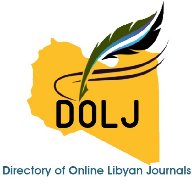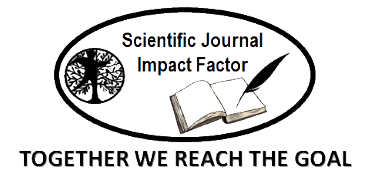The extent to which retail stores practice marketing deception from the point of view theLibyan consumers"A field study on a sample of consumers in the city of Benghazi"
Keywords:
marketing deception, retail storesAbstract
The study aimed to identify the extent to which retail stores practice marketing deception and its dimensions (product, price, distribution, and promotion) from the point of view of consumer, and then to reveal differences about the extent to which retail stores practice marketing deception as perceived by the consumer. Based on a number of variables (gender, age, educational level, marital status, monthly income level). The study used the descriptive approach; To achieve its objectives, a questionnaire tool was developed, and the size of the study population amounted to (449,525) members, following the quota sampling method, and the sample size was (384) single, and the data was analyzed using statistical software packages for social sciences (SPSS). The results of the study indicated that the practice of retail stores Marketing deception from the consumer’s point of view was (high), but in varying proportions, and it was found that marketing deception represented in distribution is the most practiced by retail stores, followed by marketing deception in the price, then marketing deception in promotion, while marketing deception related to the product came in the last rank. The results of the study also showed that there are no statistically significant differences about the extent to which retail stores practice marketing deception from the consumer’s point of view for all dimensions due to the level of monthly income and marital status, while there are statistically significant differences about the extent to which retail stores practice marketing deception in product, price or promotion. Or distribution, or two dimensions of marketing deception, or all dimensions attributed to gender, educational level, and these differences were in favor of females, and holders of a master’s degree or more. Finally, the study recommended the necessity of combating marketing deception in all its forms and intensifying media efforts to inform the consumer of his rights and educate him about this deception, and the cooperation of all state agencies, including the Municipal Guard, the Customs Guard, and consumer rights protection organizations in combating all forms of deception, and imposing deterrent penalties on perpetrators in accordance with the law.
References
• التكروري، بشائر جمال؛ وأبوزنيد، سمير، (2022)، "خداع شركات تزويد الإنترنت التسويقي من وجهة نظر طلبة الجامعات في محافظة الخليل"، مجلة الجامعة العربية الأمريكية للبحوث، 8(1)، ص 144- 177.
• تبوب، يوسف، (2019)، "الخداع التسويقي وسبل حماية المستهلك: دراسة لعينة من مستعملي الهاتف النقال"، مجلة الاقتصاد الجديد، 10(2)، ص 64 – 83.
• ثابت عبدالرحمن إدريس، بحوث التسويق: أساليب القياس والتحليل وإختبار الفروض، الإسكندرية: الدار الجامعية، 2008.
• ديب، صلاح شيخ؛ قاسم، سامر؛ مرتكوش، نور منير، (2013)، "مدى إدراك مستهلكي المواد الغذائية لممارسات الغش والخداع التسويقي: دراسة ميدانية في مدينة اللاذقية"، مجلة جامعة تشرين للبحوث والدراسات العلمية، 35 (1)، ص 177 – 198.
• أبو ذهب، إيمان الصالحين؛ قدور، بديعة عاشور؛ الحداد، صابرين المبروك، (2020)، "تقييم مدى التزام المسوقين بمعايير أخلاقيات التسويق وتأثيرها على تنشيط المبيعات في الأسواق التجارية الليبية: دراسة ميدانية على الأسواق التجارية في مدينة درنة"، المجلة العربية للنشر العلمي (AJSP)، العدد (15)، ص 183 – 214. متاح على الرابط: www.ajsp.net
• أبو رمان، أسعد حماد؛ الزيادات، ممدوح طايع، (2010)، "مدى إدراك السياح الأردنيين للخداع التسويقي الذي تمارسه وكالات السياحة والسفر: دراسة تحليلية ميدانية"، مجلة تنمية الرافدين، 32 (100)، ص 151 – 175.
• الأشقر، صلاح علي، (2018)، "اتجاهات المستهلكين نحو ممارسات الخداع التسويقي في عنصر الإعلان: دراسة ميدانية لعينة من المستهلكين المتعاملين مع سوق ستي مول التجاري لمدينة الخمس"، مجلة العلوم الاقتصادية والسياسية، العدد (11)، ص 157 – 187.
• صبحي، سناء سعد الدين حامد؛ الشرقاوي، منال محمد، (2019)، "أثر الخداع التسويقي على ولاء العملاء: دراسة حالة مكاتب السياحة والسفر بالقاهرة"، المجلة الدولية للتراث والسياحة والضيافة، 13 (2)، ص 66 – 94.
• الصداعي، محمد الثابت، (2019)، "اتجاهات المستهلكين ومدى إدراكهم وتقبلهم للغش التجاري في الإعلانات: دراسة ميدانية على جمهور المستهلكين بمدينة زليتين"، مجلة العلوم الاقتصادية والسياسية، العدد (14)، ص 172 – 190.
• ضجر، عمار يوسف، (2021)، "إدراكات الزبون لممارسات الخداع التسويقي وتأثيرها في نية تكرار الشراء من خلال القيمة المدركة للزبون: دراسة تحليلية على عينة من طلبة كلية الإدارة والاقتصاد/ جامعة البصرة"، مجلة الاقتصادي الخليجي، العدد (47)، ص 217 – 240.
• عبدالفتاح، عز حسن، (2008)، مقدمة في الإحصاء الوصفي والاستدلالي باستخدام SPSS، المملكة العربية السعودية: خوارزم العلمية للنشر والتوزيع.
• العاصي، فاطمة محمد أحمد، (2015)، "أثر الخداع التسويقي في بناء الصورة الذهنية للمستهلك في سوق الخدمات لدى شركات تزويد الإنترنت في قطاع غزة"، رسالة ماجستير غير منشورة، قسم إدارة الأعمال، كلية التجارة، الجامعة الإسلامية غزة.
• غنيم، أحمد محمد السيد؛ خشبة، ناجي محمد فوزي؛ شميس، محمد أحمد راغب، (2015)، "العلاقة بين الخداع التسويقي في المنتجات ورضا المستهلك بالتطبيق على عملاء المتاجر متعددة الأقسام بمحفظة دمياط"، المجلة المصرية للدراسات التجارية، 39 (4)، ص 603 – 618. متاح على الرابط: http://search.mandumah.com/Record/775586
• القرشي، رَدًّاد ظاهر؛ السليحات، محمد كامل، (2015)، "الخداع التسويقي وتأثيره على قرار الزبون في مراحل الشراء: دراسة تحليلية على عينة من المستشفيات الخاصة"، مجلة المثنى للعلوم الاقتصادية والإدارية، 5 (2)، ص 84 – 108.
• محمد عبيدات ومحمد أبونصار وعقلة مبيضين، منهجية البحث العلمي: القواعد والمراحل والتطبيقات، عمان: دار وائل للطباعة والنشر، الطبعة الثانية، 1999.
• محمد، ممدوح عبدالفتاح أحمد، (2020)، "الخداع التسويقي وأثره على السلوك الشرائي التفاعلي للزبون: تحليل آراء عينة من مستهلكي الوجبات السريعة بالمملكة العربية السعودية"، مجلة الدراسات التجارية المعاصرة، العدد (9)، ص 2 – 59.
• منصور، مجيد، (2011)، "درجة الممارسات التسويقية اللاأخلاقية في أسواق التجزئة في شمال الضفة الغربية ومدى تقبل المستهلكين لها"، مجلة جامعة النجاح للأبحاث (العلوم الإنسانية)، 25 (10)، ص 25 – 41.
• ناجي معلا ورائف توفيق، أصول التسويق: مدخل تحليلي، عمان: دار وائل للنشر والتوزيع، الطبعة الثانية، 2003.
• الغش التجاري: عدم المسؤولية والتلاعب بالأرواح، (نُشر: الأحد، 26 يناير 2020 - 21:27)، صحيفة عين ليبيا، متاح على الرابط: https://www.eanlibya.com/
Alzyadat, Akif Yousef, (2017), Consumers Attittudes toward Marketing Deception in Advertisement: An Empirical Study in Irbid City _ Jordan, Saudi Journal of Business and Management Studies, 2 (3), 143 – 148. Available online at: http://scholarsmepub.com/
Alheali, Alaa Nabeel, (2020), The Efect of Marketing Deception on Consumer Purchasing Decision: An Analytical Study of the Opinions of a Sample of Baghdad university Students, International Journal of Innovation, Creativity and Change, 13 (6), 575 – 595. Available online at: http://www.ijicc.net/
Gaber, Hazem Rasheed and Labib, Ashraf Adel and Salem, Khaled Omar, (2018), the Efect of Marketing Deception on Consumer Buying Decision on Facebook: An Empirical Study on University Students in Libya, European Journal of Business and Innovation Research, 6 (3), 12 – 18. Available online at: http://www.eajournals.org/
Kotler, P. and Keller, K. L. (2012), Marketing Management (14th edition). New Jersey: Prentice Hall.
Kotler, P. and Armstrong, G. (2012), Principles of Marketing (14th edition). New Jersey: Prentice Hall.
Krejcie, R and Morgan, D. W. (1970), ''Determining Sample Size for Research Activities''. Educational and Psychological Measurement, 30, 607- 610.
Njomo, Louis Mosake, (2014), Analyzing the impact of deceptive advertising in private higher education on Students in Cameroon, journal of Business and Retail Management Research, 9 (1), 73 – 88. Available online at: www.jbrmr.com
Sekaran, U, and Bougie, R, (2016), Research Methods For Business: A Skill Building Approach (7th), Chicheter, West Sussex, United Kingdom: John Wiley& Sons.



























